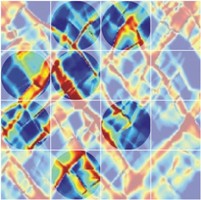|
REACTOR ENGINEERING - R4
Head of Department Secretary The division research activities belong to the wider field of nuclear engineering and safety. This interdisciplinary research integrates thermal-hydrodynamical, structural and probabilistic safety analyses. |
J. Stefan Institute, Jamova 39, 1000 Ljubljana, Slovenia, Telephone: +386 1 477 39 00 |

